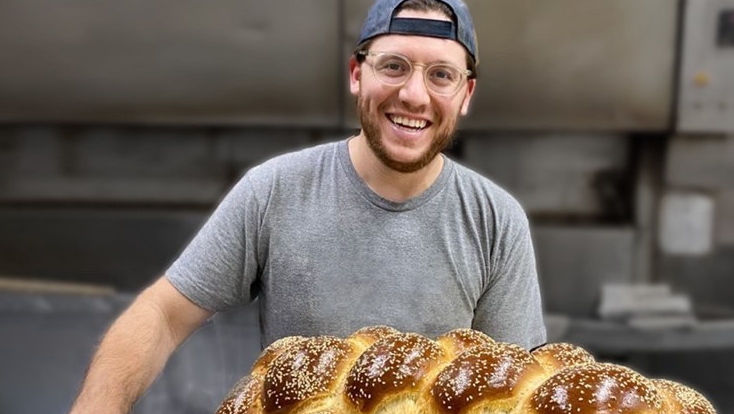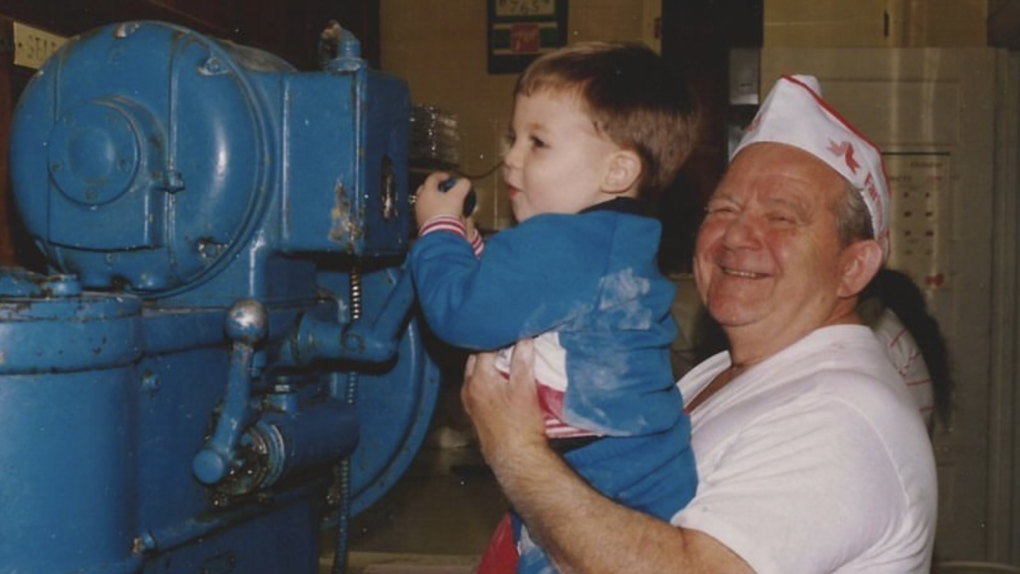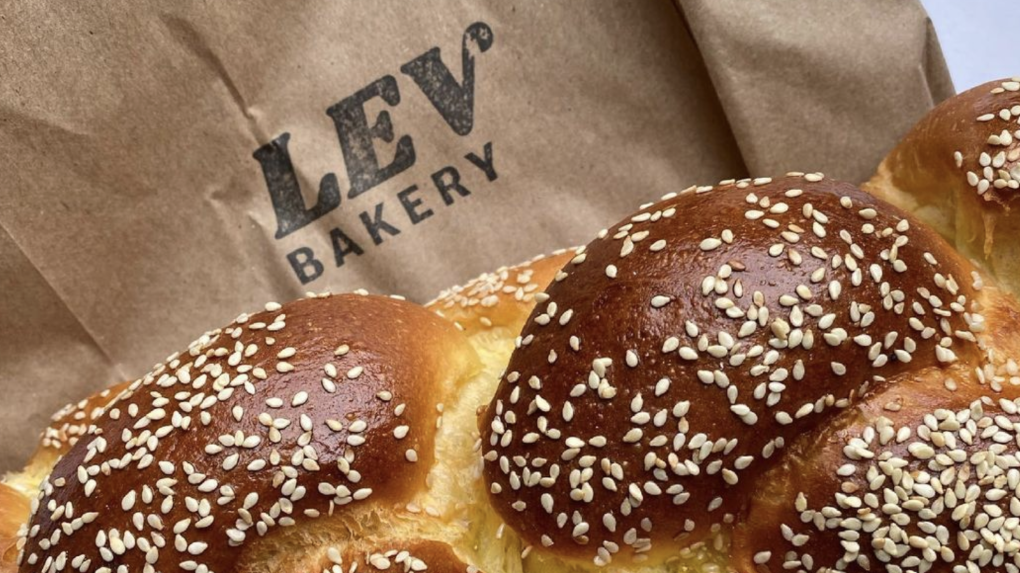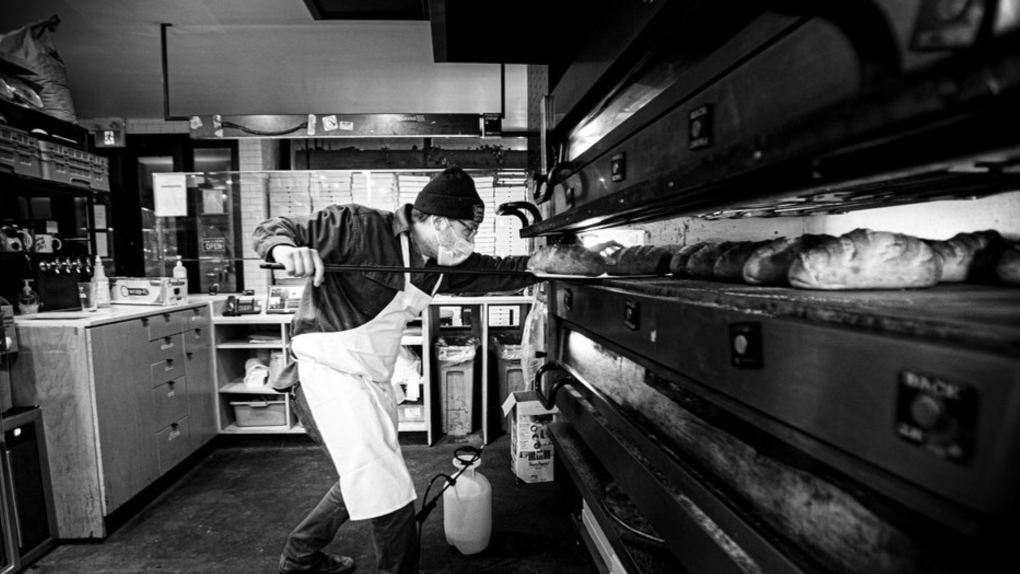How 100 years of history led to an underground bakery with a modern take on tradition
 Yonatan Kamil. Handout provided by Kamil.
Yonatan Kamil. Handout provided by Kamil.
More than 100 years ago, Yonatan Kamil’s great-great grandmother opened a Jewish bakery in Russia — the origin of generations of bakers that ripples forward to this day.
After their bakery was seized during the Russian Revolution, the family retreated to Canada. When they arrived, “baker” was stamped as the occupation on their immigration papers, a mark that would imprint Kamil’s identity decades later.
In 1930, Kamil’s great-grandfather opened Rideau Bakery in Ottawa, known for their light rye breads and braided challahs sprinkled with sesame seeds.
Kamil’s career started at the cash register, which led to 4 a.m. pastry shifts and later, six days a week in the bread department.
“I had no life except for the bakery,” Kamil said. “That’s how I really started baking and fell in love with it.”

The bakery was his “guiding light,” but in 2013, Kamil moved to Toronto to build on what he knew. He worked at some of the city’s most notable bakeries, including Brick Street Bakery in Leslieville and Blackbird Baking Co. in Kensington.
In 2019, Kamil’s family bakery in Ottawa, an institution for nearly 90-years, closed its doors. The following year, he was ready to start something entirely of his own.
“It was a dark time in the province,” he said. “We just kind of decided to start selling some bread from home.”
Kamil and his wife, Samantha April, named their underground operation Lev Bakery. In Hebrew, “lev” means heart. “Baking comes from the heart for me,” Kamil said. “It’s so deeply ingrained.” Dually, “lev” also resembles the word leaven, the transformative stage in baking when dough rises.
Lev Bakery launched with an Instagram post, selling a couple challahs, manifesting its mission statement: a modern take on tradition.

Within minutes, they sold out. “We started posting and people started wanting,” April said. “Oh it was crazy,” Kamil added. From there, the growth was organic.
Kamil and April created a system that they sustained for months: on Wednesdays, they opened pre-orders on Instagram along with a weekly menu, which often included a rye, challah and babka, each with their own twist.
On Thursdays, Kamil kneaded and baked through the night, borrowing North of Brooklyn’s industrial kitchen, which a friend owned and lent him.
“More people wanted bread than I could make,” Kamil said. At capacity, he was baking 70 unique orders of bread solo.

Friday was pick-up day. Friends met to grab their orders, parents pushed strollers as an outing for cooped-up kids and neighbours in the Bloor and Lansdowne area who Kamil had never met became regulars at his front door.
Lev Bakery became a weekly ritual at a time when stability was scarce.
But, Kamil and April knew the pandemic predicament was temporary and by the time the weather warmed and restrictions eased, they needed to have a contingency plan already in motion.
By the spring, Kamil started renting a production bakery in Etobicoke where he could bake at a higher volume and expand the Lev Bakery menu, selling to over a dozen small businesses, like Parallel Brothers, Pusateri’s, Ethica Coffee Roasters and Primrose Bagel Co.
While Lev’s business model has evolved, that intimate, initial connection was fundamental to its foundation.
Years ago, Kamil’s family bakery was a guiding light that steered his identity as a baker. Through the dark days of the pandemic, he passed that light on to his customers in the form of bread, embodying the “lev”, or heart, at the core of the bakery’s name.
ABOUT TABLE TALK
Table Talk is a weekly CTV News Toronto series that explores the people who shape Toronto’s food scene, published every Friday at CTVNewsToronto.ca
CTVNews.ca Top Stories

India's 'most wanted terrorist' arrested on gun charges in Canada
One of India's most wanted terrorists has been arrested and charged in connection with a recent alleged shooting in Ontario.
12-year-old boy charged in stabbing of 11-year-old boy at Edmonton McDonald's
The boy stabbed at a north Edmonton McDonald's last Friday is 11 years old.
What makes walking so great for your health and what else you need to do
Medical experts agree that walking is an easy way to improve physical and mental health, bolster fitness and prevent disease. While it’s not the only sort of exercise people should do, it’s a great first step toward a healthy life.
U.S. Congress hosts second round of UFO hearings
The U.S. government held another UFO hearing on Capitol Hill on Wednesday, the second such hearing in 16 months. This hearing was billed as an attempt by congress to provide a better understanding of what is known about previous sightings of UFOs, also known as UAPs (Unidentified Anomalous Phenomena).
Toronto teenager charged with first-degree murder in Kitchener, Ont. homicide
A Toronto teen has been charged as part of an investigation into Kitchener, Ont.’s first homicide of 2024.
Spy service officer denies threatening Montreal man who was later imprisoned in Sudan
A Canadian Security Intelligence Service official has denied threatening a Montreal man who was later imprisoned and allegedly tortured by authorities in Sudan.
Dave Coulier, 'Full House' star, has cancer
Dave Coulier, an actor and comedian who found fame as Uncle Joey on "Full House," has revealed he has been diagnosed with stage 3 non-Hodgkin lymphoma, a blood cancer.
Donald Trump picks Florida Rep. Matt Gaetz to serve as attorney general
President-elect Donald Trump on Wednesday said he will nominate Republican Rep. Matt Gaetz of Florida to serve as his attorney general, putting a loyalist in the role of the nation's top prosecutor.
Canada bracing for 'tough' talks as Trump's pick calls northern border an 'extreme vulnerability'
The Canadian government is aware it's likely in for 'tough conversations' with U.S. president-elect Donald Trump's administration, after his border czar said there is 'an extreme national security vulnerability' he intends to tackle at the Canada-U.S. border.


































